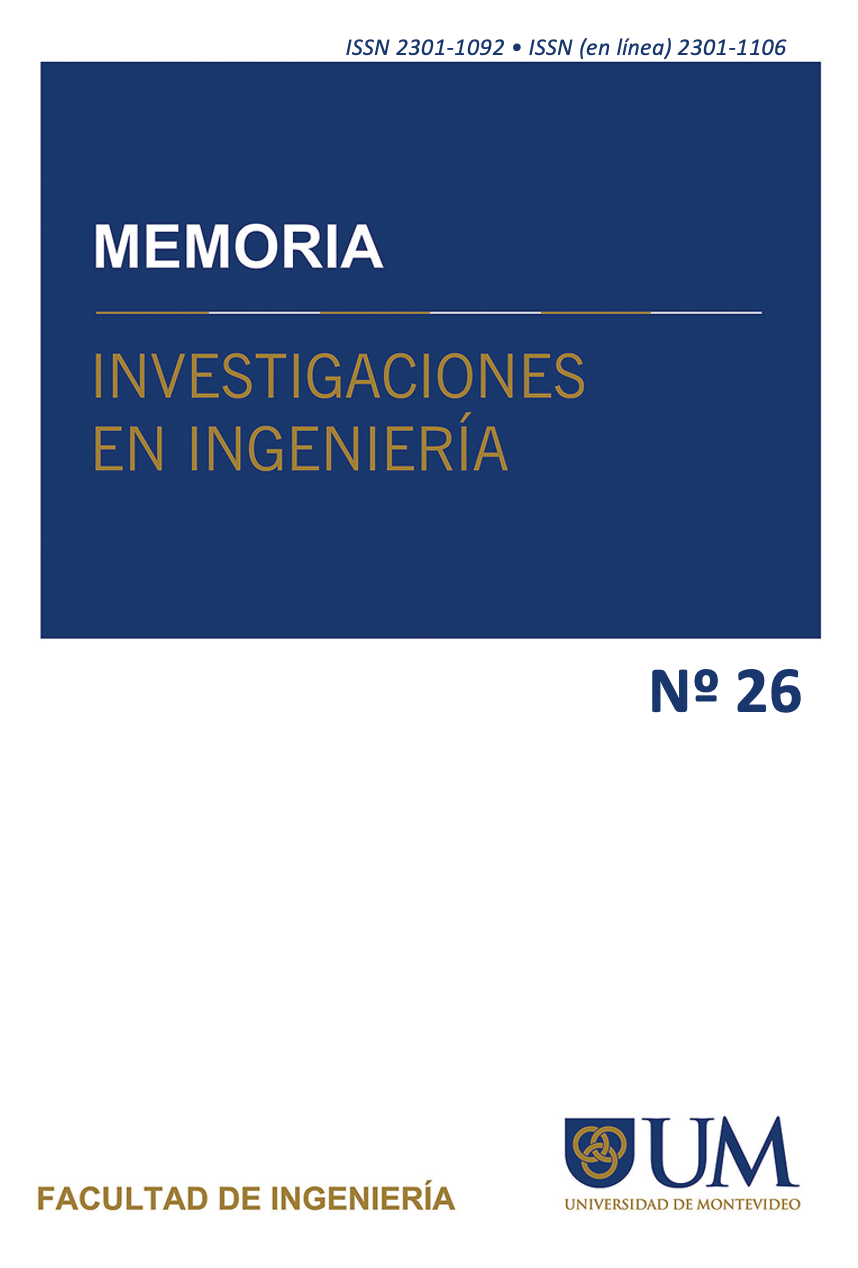Reducing Energy Consumption of Refrigerator Compressor using Aluminum Oxide Nanoparticles
DOI:
https://doi.org/10.36561/ING.26.3Keywords:
Refrigeration, Nanoparticles, Lubricant, Compressor, EnergyAbstract
Refrigeration has become an integral part of our daily lives and can be regarded as a process whose replacement is nearly impossible. Therefore, the only way of making this process efficient is by reducing the energy consumed by the components of refrigerators. One way of doing this is to reduce the power consumption of compressor by the addition of nanoparticles either in a refrigerant or in a lubricant. This study focusses on producing nanolubricant (Al2O3/Synthetic lubricant) and dispersing the nanolubricant into R-134a compressor. This study investigates that how much power can be reduced when Aluminum oxide (Al2O3) nanoparticles dispersed in SL-32 lubricant (base fluid). A comparison between SL-32 lubricant with and without the addition of Aluminum oxide nanoparticles was done and it showed a reduction of 0.913% in current consumption and 2.74% in power at the same initial temperature of 31°C in both cases. Hence it can be concluded that Alumina nanoparticles can be utilized to reduce the energy utilized by compressors by creating a nanolubricant with SL-32 lubricant.
Downloads
References
S. Comstock, "HALOCARBON REFRIGERATION SYSTEMS," in ASHRAE HANDBOOK, Atlanta, Stephen Comstock, 2014, p. 1.
W. F. Stoecker, "Applications of Refrigeration and Airconditioning," in Refrigeration and Air conditioning (2nd Edition), McGraw-Hill, 1986, p. 12.
Y. A. Cengel, "THE SECOND LAW OF THERMODYNAMICS," in Thermodynamics: An Engineering Approach (5th Ed), McGraw-Hill, 2006, p. 287.
Stephen U. S. Choi and J. A.Eastman, "Enhancing thermal conductivity of fluids with nano particles," ASME International Mechanical Engineering Congress & Exposition, 1995.
A. Majgaonkar, "Use of nanoparticles in refrigeration systems: a literature review paper," in International Refrigeration and Air Conditioning Conference, 2016.
M. Hatami and D. Jing, Nanofluids: Mathematical, Numerical, and Experimental Analysis, Elsevier, 2020.
G. H. Hundy, A. R. Trott and T. C. Welch, "Oil in Refrigerant Circuits," in Refrigeration and air-conditioning, Butterworth-Heinemann, 2008, pp. 89-98. DOI: https://doi.org/10.1016/B978-0-08-100647-4.00005-X
W. Yu and H. Xie, "A review on nanofluids: preparation, stability mechanisms, and applications," Journal of nanomaterials, 2012. DOI: https://doi.org/10.1155/2012/435873
L. J. Akinlesi, D. S. Adelekan, O. S. Ohunakin, O. E. Atiba, J. Gill and A. A. Atayero, "Experimental performance of a domestic refrigerator with TiO2-nanoparticles operating within selected ambient temperature," Journal of Physics, vol. 1378, no. 4, 2019. DOI: https://doi.org/10.1088/1742-6596/1378/4/042081
N. Subramani and M. J. Prakash, "Experimental studies on a vapour compression system using nanorefrigerants," International Journal of Engineering, Science and Technology, vol. 3, no. 9, pp. 95-102, 2011. DOI: https://doi.org/10.4314/ijest.v3i9.8
V. Nair, A. D. Parekh and P. R. Tailor, "Experimental investigation of a vapour compression refrigeration system using R134a/Nano-oil mixture," International Journal of Refrigeration, vol. 112, pp. 21-36, 2020. DOI: https://doi.org/10.1016/j.ijrefrig.2019.12.009
C. S. Jwo, L. Y. Jeng, T. P. Teng and H. Chang, "Effects of nanolubricant on performance of hydrocarbon refrigerant system," Journal of Vacuum Science & Technology B: Microelectronics and Nanometer Structures Processing, Measurement, and Phenomena, vol. 27, no. 3, pp. 1473-1477, 2009. DOI: https://doi.org/10.1116/1.3089373
G. Jatinder, O. S. Ohunakin, D. S. Adelekan, O. E. Atiba, A. B. Daniel, J. Singh and A. A. Atayero, "Performance of a domestic refrigerator using selected hydrocarbon working fluids and TiO2–MO nanolubricant," Applied Thermal Engineering, vol. 160, p. 114004, 2019. DOI: https://doi.org/10.1016/j.applthermaleng.2019.114004
S. S. Bi, L. Shi and L. L. Zhang, "Application of nanoparticles in domestic refrigerators," Applied Thermal Engineering, vol. 28, no. 14-15, pp. 1834-1843, 2008. DOI: https://doi.org/10.1016/j.applthermaleng.2007.11.018
A. S. Husainy, P. Chougule, S. Hasure, A. Patil, S. Tukshetti and K. Badade, "Performance improvement of ducted air-conditioning system with different mass fraction of CuO nanoparticles mixed in POE oil," Int. Res. J. Eng. Technol., vol. 6, no. 4, pp. 1003-1007, 2019.
M. Sharif, W. H. Azmi, R. Mamat and A. I. M. Shaiful, "Mechanism for improvement in refrigeration system performance by using nanorefrigerants and nanolubricants–A review," International Communications in Heat and Mass Transfer, vol. 92, pp. 56-63, 2018. DOI: https://doi.org/10.1016/j.icheatmasstransfer.2018.02.012
T. B. F. Selimefendigil, "Experimental investigation of nano compressor oil effect on the cooling performance of a vapor-compression refrigeration system," Journal of Thermal Engineering, vol. 5, no. 1, pp. 100-104, 2019. DOI: https://doi.org/10.18186/thermal.513023
A. Senthilkumar, P. V. Abhishek, M. Adithyan and A. Arjun, "Experimental investigation of CuO/SiO2 hybrid nano-lubricant in R600a vapour compression refrigeration system," Materials Today: Proceedings, vol. 45, pp. 6083-6086, 2021. DOI: https://doi.org/10.1016/j.matpr.2020.10.178
T. P. Pramudantoro, F. N. Ani and H. Nasution, "Enhancing air conditioning performance using TiO2 nanoparticles in compressor lubricant," Advanced Materials Research, vol. 1125, pp. 556-560, 2015. DOI: https://doi.org/10.4028/www.scientific.net/AMR.1125.556
N. S. Desai and P. R. Patil, "Application of SiO2 nanoparticles as lubricant additive in VCRS: an experimental investigation," Asian Review of Mechanical Engineering, vol. 4, no. 1, pp. 1-6, 2015. DOI: https://doi.org/10.51983/arme-2015.4.1.2393
D. G. Subhedar, J. Z. Patel and B. M. Ramani, "Experimental studies on vapour compression refrigeration system using Al2O3/mineral oil nano-lubricant," Australian Journal of Mechanical Engineering, vol. 20, no. 4, pp. 1136-1141, 2022. DOI: https://doi.org/10.1080/14484846.2020.1784558
Subramani Narayanasarma and Biju T. Kuzhiveli, "Evaluation of the properties of POE/SiO2 nanolubricant for an energy-efficient refrigeration system – An experimental assessment," Powder Technology, vol. 356, no. November, p. 1029–1044, 2019. DOI: https://doi.org/10.1016/j.powtec.2019.09.024
Published
How to Cite
Issue
Section
License
Copyright (c) 2024 Adeel Ahmed Khan, Muhammad Ehtesham ul Haque, Farjad Siddiqui, Syed Muhammad Taha Nasir, Talha Shafique, Hassan Khalid

This work is licensed under a Creative Commons Attribution 4.0 International License.






















